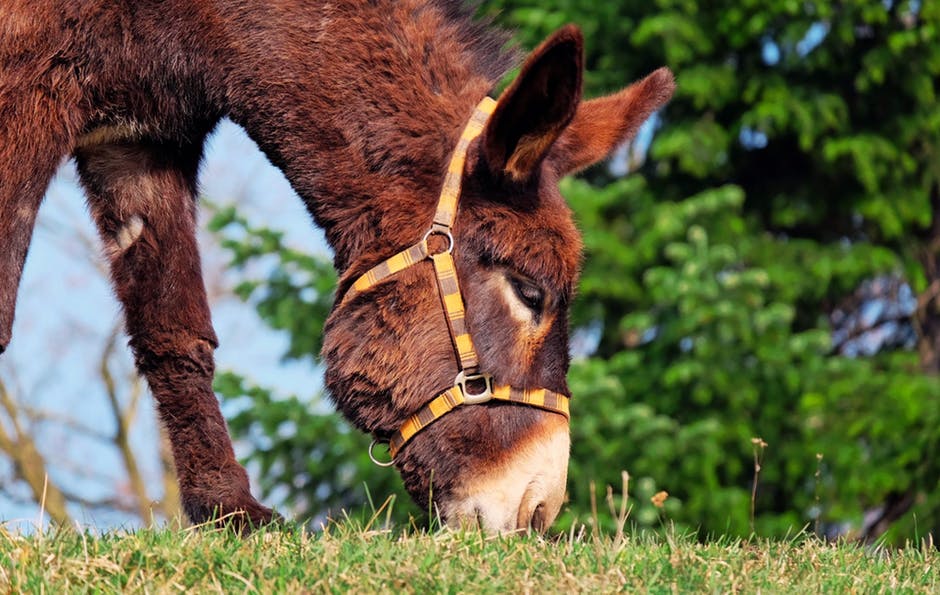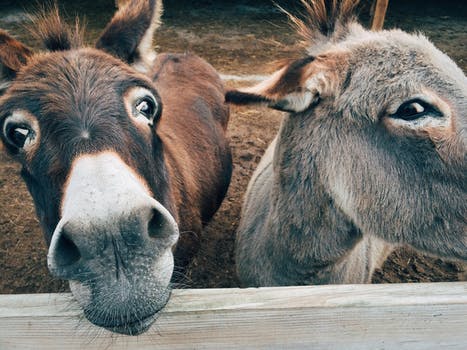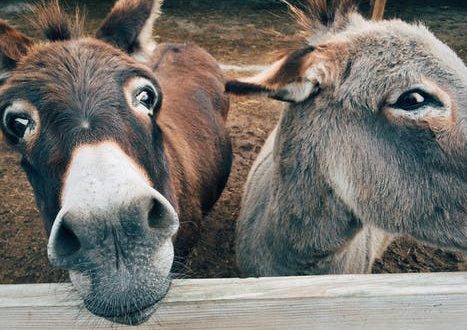Big fluffy ears and gangly legs, soft snub noses and wide brown eyes; baby donkeys must surely rank among the cutest of the cute in the animal world. It’s no wonder so many people fall in love with them – and want to keep one as a pet. But before you succumb, give it some serious thought.
Care and commitment
Few potential donkey owners realise just how long these lovely animals live, or how intelligent, frail (yes, that’s right!) and in need of company they are. Donkeys are not horses; in fact, those in the know will quickly tell you that in terms of intelligence, a donkey is far more like a dog than a horse.

Training
Donkeys are not animals which can be hurried or bullied into obedience. They are anxious to please and quick to learn, and with careful, daily training that is filled with praise and small rewards (and the occasional touch of gentle persuasion), they will soon do almost anything you ask. They also have long memories so should you do anything that makes them fearful or resentful, they are likely to remember it forever.
Company
As with dogs, company and personal attention is highly important to a donkey. Although these gentle creatures can get by with a non-donkey companion (such as a pony or a sheep or goat) in their field, they much prefer another of their kind, and really pine when left alone. So unless you have your donkey field right beside your house, where your animal companion can see you on a frequent and regular basis, plan on acquiring two donks.
Frailty
Frailty is not something one would usually associate with a stocky little donkey yet these animals, originating from some of the driest regions of the world, are no lovers of wet, cold conditions, and a roof over their heads is a must. Although it is possible to get by with just a warm, wool-lined cover for your animal when it is grazing away from its field for short periods, its home paddock must offer a substantial shelter that is accessible at all times.
Wet conditions also play havoc with donkeys’ feet. If you plan on managing hoof care yourself (and this is quite possible if you train a young donkey from an early age to lift its feet compliantly), be prepared to spend an hour every 4-6 weeks checking, trimming and shaping the hooves. Seedy toe, an ugly condition which literally eats away the hoof, is synonymous with donkeys in wet climates, and only vigilance will keep it in check.
 Loads of love
Loads of love
But work and care aside, a donkey is one of the most devoted of animal companions. Well trained and shown daily affection, it will let you cuddle and brush it, take it for walks on or off a lead, and even ride it. Playful animals, two donkeys together will delight you for hours with their antics: playing tug-of-war with sticks, tossing buckets (or toys such as soccer balls) left in the field, galloping and gallivanting.
Whether you are ready for a donkey in your life is only something you can decide, and in doing so it pays to remember one very important fact: while a dog lives for just 10 or 12 years on average, a donkey’s life is a very long one. Your large-eared companion is highly likely to be with you for 30-40 (and in some cases 50) years. Good luck with your decision-making!









Join the Discussion
Type out your comment here:
You must be logged in to post a comment.